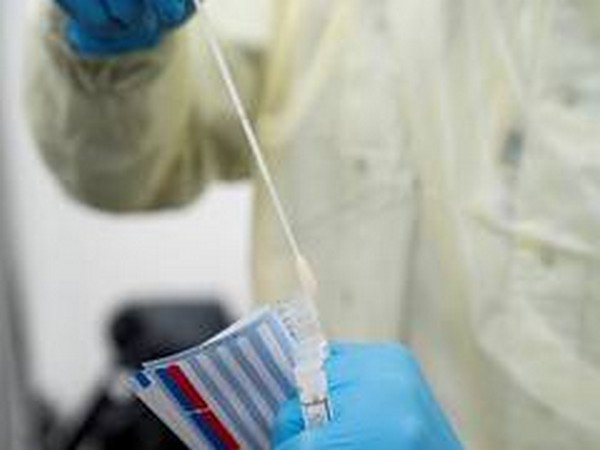COVID-19 patients who undergo surgery at increased death risk: Lancet study

- Country:
- United Kingdom
Patients undergoing surgery after contracting the novel coronavirus are at an increased risk of postoperative death, according to a new study published in The Lancet journal which may lead to better treatment guidelines for COVID-19. In the study, the scientists, including those from the University of Birmingham in the UK, examined data from 1,128 patients from 235 hospitals from a total of 24 countries. Among COVID-19 patients who underwent surgery, they said the death rates approach those of the sickest patients admitted to intensive care after contracting the virus. The scientists noted that SARS-CoV-2 infected patients who undergo surgery, experience substantially worse postoperative outcomes than would be expected for similar patients who do not have the infection.
According to the study, the 30-day mortality among these patients was nearly 24 percent. The researchers noted that mortality was disproportionately high across all subgroups, including those who underwent elective surgery (18.9 percent), and emergency surgery (25.6 percent). Those who underwent minor surgery, such as appendicectomy or hernia repair (16.3 percent), and major surgery such as hip surgery or for colon cancer also had higher mortality rates (26.9 percent), the study said.
According to the study, the mortality rates were higher in men versus women, and in patients aged 70 years or over versus those aged under 70 years. The scientists said in addition to age and sex, risk factors for postoperative death also included having severe pre-existing medical problems, undergoing cancer surgery, undergoing major procedures, and undergoing emergency surgery. "We would normally expect mortality for patients having minor or elective surgery to be under 1 percent, but our study suggests that in SARS-CoV-2 patients these mortality rates are much higher in both minor surgery (16.3%) and elective surgery (18.9%)," said study co-author Aneel Bhangu from the University of Birmingham.
Bhangu said these mortality rates are greater than those reported for even the highest-risk patients before the pandemic. Citing an example from the 2019 UK National Emergency Laparotomy Audit report, he said the 30-day mortality was 16.9 percent in the highest-risk patients. Based on an earlier study across 58 countries, Bhangu said the 30-day mortality was 14.9 percent in patients undergoing high-risk emergency surgery. "We recommend that thresholds for surgery during the SARS-CoV-2 pandemic should be raised compared to normal practice," he said. "For example, men aged 70 years and over undergoing emergency surgery are at particularly high risk of mortality, so these patients may benefit from their procedures being postponed," Bhangu added.
The study also noted that patients undergoing surgery are a vulnerable group at risk of SARS-CoV-2 exposure in hospitals. It noted that the patients may also be particularly susceptible to subsequent pulmonary complications, due to inflammatory and immunosuppressive responses to surgery and mechanical ventilation. The scientists found that overall in the 30 days following surgery 51 percent of patients developed pneumonia, acute respiratory distress syndrome, or required unexpected ventilation. Nearly 82 percent of the patients who died had experienced pulmonary complications, the researchers said. "Worldwide an estimated 28.4 million elective operations were canceled due to disruption caused by COVID-19," said co-author Dmitri Nepogodiev from the University of Birmingham. "Our data suggests that it was the right decision to postpone operations at a time when patients were at risk of being infected with SARS-CoV-2 in hospital," Nepogodiev said.
According to the researchers, there's now an urgent need for investment by governments and health providers to measures which ensure that as surgery restarts patient safety is prioritized. They said this includes the provision of adequate personal protective equipment (PPE), the establishment of pathways for rapid preoperative SARS-CoV-2 testing, and consideration of the role of dedicated 'cold' surgical centers.
(This story has not been edited by Devdiscourse staff and is auto-generated from a syndicated feed.)
- READ MORE ON:
- COVID
- The Lancet
- Aneel Bhangu
- University of Birmingham
- UK
- SARSCoV
ALSO READ
"Post Covid, immunity has decreased and viral infections including various allergies increased": AIIMS expert
My taxable income plummeted to Rs 680 in 2021-22 due to Covid-19 losses: BJP's Chandrasekhar
Health News Roundup: Sanofi to overhaul US operations of vaccines, cut jobs; After COVID, WHO defines disease spread 'through air' and more
SC adjourns for July Ramdev's plea for clubbing of FIRs on his remarks on efficacy of allopathy to cure Covid-19
Health News Roundup: USDA confirms cow-to-cow transmission a factor in bird flu spread; After COVID, WHO defines disease spread 'through air' and more










